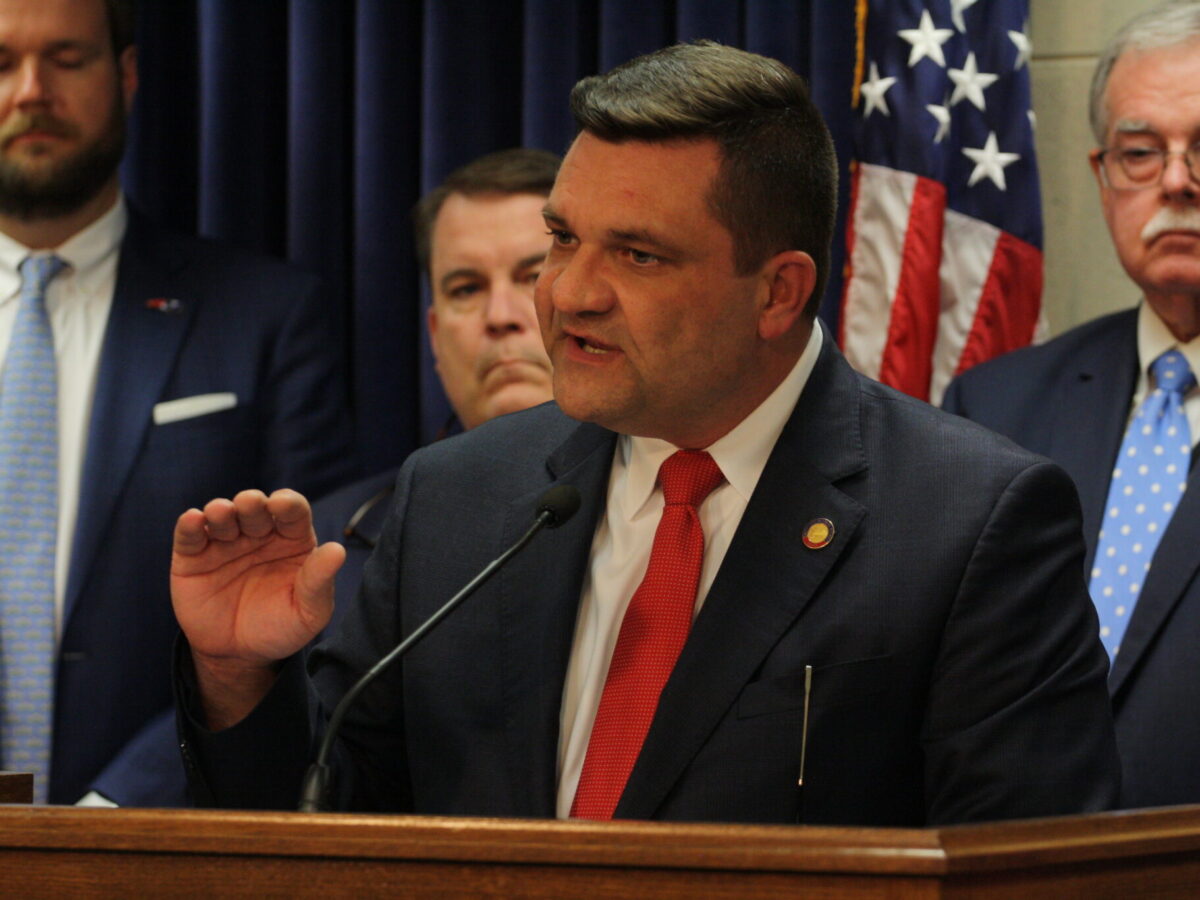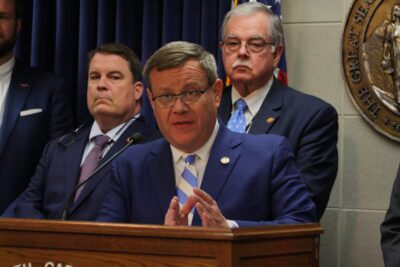

|
|
House Democrats and other lawmakers had a chance Thursday to talk about the Republican House budget proposal during a day-long House appropriations committee meeting.
The committee heard a presentation on the education portion of the budget and had a chance to add amendments to the proposal, which included additional 7.50% across-the-board pay raises for teachers over the biennium.
The House proposal doesn’t meet the minimum 16% pay raises for teachers over the biennium contained in Democratic Gov. Roy Cooper’s budget plan that dropped a few weeks back. The House proposal also doesn’t include dedicated funding for the Leandro comprehensive plan, which would be funded through year five in Cooper’s proposal.
The bulk of the day was taken up with consideration of amendments from different lawmakers.
Most amendments addressing some of what will be considered the more controversial parts of the budget plan failed.
An amendment that would remove the portion of the budget that forces schools to post curriculum and instruction online was put forward by Rep. Marcia Morey, D-Durham. The language in the bill is similar to one attempted in 2021.
“The problem is, this becomes so burdensome on educators because they will have to put all of their materials … on the electronic link,” she said.
Another bill would remove $25 million being put into the Opportunity Scholarship program and use it instead for teacher assistants. Rep. Julie von Haefen, D-Wake, noted that in prior years, money was left over for the Opportunity Scholarship program and so it didn’t need even more money added. That amendment was also voted down.
Rep. Rosa Gill, D-Wake, later tried and failed to take that same pot of money for a disadvantaged student supplement fund.
Von Haefen also tried an amendment to remove the commission created in the budget that would take charge of revising the state’s academic standards going forward. That group would take over what has previously been the purview of the State Board of Education and the state Department of Public Instruction.
“Creating this advisory commission is just another example of eroding the State Board of Education’s constitutional authority,” she said.
The portion of the budget related to the commission also included language that would have the commission revise and make recommendations to the State Board of Education on the most recently revised social studies standards, the passage of which was controversial.
Other amendments that failed include:
- One removing language in the bill transferring control of the state’s schools for the deaf and blind from the State Board of Education to boards of trustees appointed largely by the General Assembly.
- One that would eliminate a provision that transfers the authority to “approve or deny charter applications, renewals, and revocations” from the State Board of Education to a renamed charter school advisory committee.
- One that would remove a provision to extend the pilot of the two statewide virtual charter schools in North Carolina. This proposal has also been introduced as a bill this session.
It wasn’t only Democrats who were stymied, however. Rep. John Torbett, R-Gaston, chair of the House education and education appropriations committees, wanted to take budgeted money from the small county supplemental fund and use it instead for Advanced Teaching Roles. The amendment failed after a plea by Rep. Jeffrey Elmore, R-Wilkes, which included reading out the names of all the counties that are funded through that supplemental fund.
And some education amendments did pass during the committee meeting, including a trio of amendments from Rep. David Willis, R-Union, that adds three different pilots related to child care.
An amendment from Rep. Zack Hawkins, D-Durham, has the UNC System Board of Governors reporting to lawmakers on the “advisability and feasibility”of making more schools administrators of the New Teacher Support Program. Elizabeth City State University is called out by name as one of those schools. That amendment also passed.
When the amendment process was over, a motion was immediately made to give a favorable vote to the amended budget proposal. One representative tried to ask during the vote whether there was going to be discussion about the budget plan itself. The question was not addressed.
The budget plan will go next to the full House for consideration.



